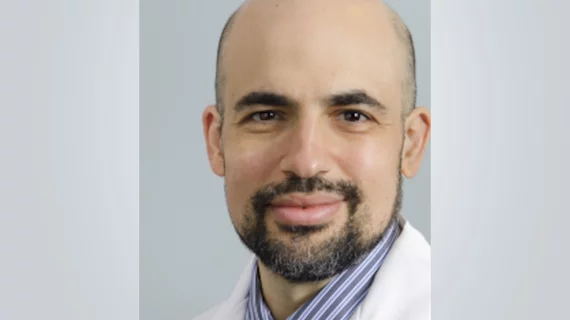RSNA 2018: The value of automated recommendations in AI radiology reporting
As time goes on, artificial intelligence (AI) is becoming more widely accepted as a necessary component of clinical workflow in medical imaging. According to Tarik K. Alkasab, MD, PhD, a radiologist at Massachusetts General Hospital in Boston, AI has the potential to make radiology reporting much more consistent and ultimately help radiologists make smarter decisions through the power of structured automated recommendations.
Alkasab will be discussing AI’s impact on radiology reporting Wednesday, Nov. 28, at RSNA 2018 with his session, “Structured Automated Recommendations: Reporting in the Era of Artificial Intelligence.” He spoke with Radiology Business ahead of the conference to share his thoughts about this topic.
Structured automated recommendations, Alkasab noted, could improve the workflow for both radiologists and medical imaging providers. They can also help determine whether a recommend follow-up imaging study was obtained and may prevent error in patient care across health systems.
With structured automated recommendations, the radiologist is responsible for confirming the findings made by the machine learning software and ensuring whether the follow-up imaging exam was obtained. This “feedback”, Alkasab said, could be used to fine-tune the AI over time.
This extra step could be seen as burdensome to radiologists, but Alkasab noted that doing it for the sake of the ordering providers is worth the "very low investment of energy."
According to Alkasab, this type of reporting will become a clinical standard in the years ahead and help radiologists provide better patient care. He noted that ordering providers will benefit as well.
Currently, Massachusetts General Hospital is implementing its own structured automated recommendation system, which Alkasab said has been successful due to involving the hospital's ordering providers in the process.
“It's a terrific opportunity for us to deliver more value as we do our work,” Alkasab said. “I'm really excited about it and I know our ordering providers are very excited about it. It's something we're really eager to move forward with.”
Alkasab will deliver his presentation as part of the four-part “Next Generation Reporting: Informatics to Improve the Value of Reporting” session Wednesday, Nov. 28, at 8:30 a.m. More information is available on the RSNA 2018 interactive program.

